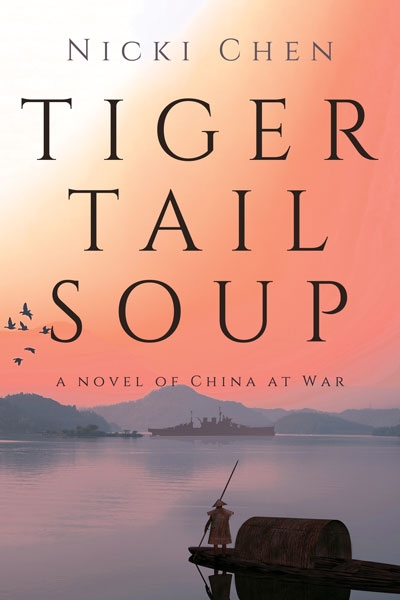A Cure for Red, Itchy Eyes
A few months ago my niece’s eyes were driving her crazy. They were red, itchy and dry. It was probably just an allergy, but she didn’t want to take an antihistamine because she was breast feeding. What to do?
Then she remembered that her friend had cured her baby’s eye infection with breast milk. It was worth a try.
She put a few drops of milk in each eye, and … Instantly better. So much so that she didn’t have to use the milk cure again. Not on her eyes. A week or two later, though, she used it on her ear. She’d torn the skin with her earring and it got infected. She applied a few drops that day and again the next day. Once again, milk success.
“It probably cures cancer,” she says.
Baby Formula
Mothers weren’t nearly as enthusiastic about their milk when I was a baby. Breastfeeding was considered old fashioned, even disgusting, a practice only for the poor and uneducated. (See The One Best Way?: Breastfeeding History, Politics and Policy in Canada.) Nevertheless, my mom wanted to nurse me. “I tried,” she told me years later, smiling down at her ample breasts. “But I didn’t have enough milk. With the war going on and never knowing whether your dad was alive or dead, I was too nervous.” She looked apologetic.
Triple-chin Chen
By the time my children were born, nursing was back in style .
I nursed my first two daughters for five or six months each. My youngest, Rose, only got three months. I blame that on Nellie’s love of babies. We moved to the Philippines soon after Rose was born. Nellie, our first maid, didn’t have much opportunity to care for her except when I went out. Each time I left, I nursed the baby first and told Nellie I would feed her again when I returned.
But when I walked in the door, my breasts leaking milk, Rose would be sound asleep, no longer interested in eating because Nellie had fed her lugao (rice porridge) with a raw egg stirred in. I tried to reason with her, but Nellie never saw my point. A crying baby needed to eat. That was the long and the short of it.
Inevitably, we ended up with a chubby baby. Triple-chin Chen, we called her.
Wet Nurses
 In the world my husband was born into, if you could afford it, you hired a wet nurse. It was wartime, 1938. The invading Japanese army and navy had surrounded their island in southeastern China. Food was hard to come by. Baby formula was out of the question. Either you nursed your own baby or you found a nursing mother whose baby was old enough to start eating rice porridge, and you paid her to nurse yours.
In the world my husband was born into, if you could afford it, you hired a wet nurse. It was wartime, 1938. The invading Japanese army and navy had surrounded their island in southeastern China. Food was hard to come by. Baby formula was out of the question. Either you nursed your own baby or you found a nursing mother whose baby was old enough to start eating rice porridge, and you paid her to nurse yours.
Ironically, wet nurses have become popular in China again. (See: Tainted Milk Scandal Revives China’s “wet nurses.”) The practice was discontinued for decades after Mao Zedong denounced it as decadent. But in 2004 when four babies died from drinking tainted baby formula and almost 13,000 were hospitalized, mothers who didn’t want to nurse started looking for wet nurses.
Wet Nurses for Adults
The list of ailments breast milk is alleged to cure is as long as your arm. Is it any wonder then that adults want to partake of this “miracle” liquid filled with enzymes, hormones, immune factors, antibodies and balanced nutrients?
In Shenzhen China, breast milk has become the new luxury item for some wealthy Chinese adults. They hire wet nurses for $2600 a month, and drink either directly from the breast or after the milk has been expressed using a breast pump. Not surprisingly, the practice has provoked outrage in China and elsewhere.





Fascinating cultural differences, Nicki! thanks for sharing all this information.
“In Shenzhen, China, breast milk has become the new luxury item for some wealthy Chinese adults.” This was the first story that came to my mind when I read the paragraph about wet nurses. Most people I know in Shenzhen who just had a baby have given up nursing for milk powder, just because they don’t have the money to stay home all the time (they do at least stay home 3 months, but many go back to work immediately after that). Since Shenzhen is close to Hong Kong, many parents of infants will cross the border at the weekends and buy a foreign brand’s monthly supply of milk powder (I’ve heard that this is how much you’re currently allowed to take across the border for the youngest ones).
Thank you for adding these interesting details to the conversation.
Just today I went to a hospital to see a doctor. I passed the gynaecology ward where a sign outside said something similar to: “Drinking mother’s milk gives your child a lifetime of health”. Seems like they are advertising mother’s milk at hospitals now.
It’s nice to see that they’re advertising the benefits of mothers’ milk. Using formula is sometimes easier, so nursing needs a boost.
Fascinating post, Nicki! I’m not surprised breastfeeding is becoming popular here in China. Definitely so here in the countryside. My sister-in-law didn’t use formula at all with her young daughter.
I also love the “triple chin chen”! So funny!
Thank you for stopping by, Jocelyn. It’s strange that something as natural as breastfeeding has gone in and out of fashion.
Love your story about your daughter “Triple Chin.” Babies go through so many stages. We call it the rubber band stage where the chubbiness can be seen in the wrist. It looks like there is a rubber band there. My mother nursed me for 9 months (until I bit her). I was a very healthy child and she always attributed that to the nursing. Although I applaud women who chose to breast feed I still would prefer not to see in the checkout lane at the grocery store.
Thank you, Kate. When I look back at the photos now, I see that my daughter wasn’t actually that chubby. (This photo was the most exaggerated.)